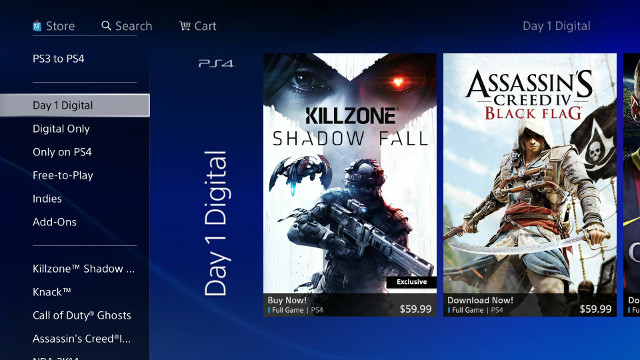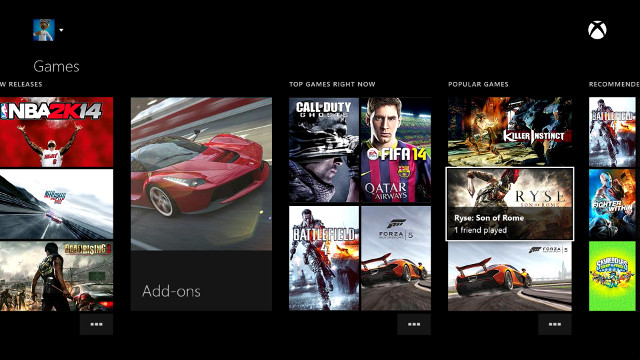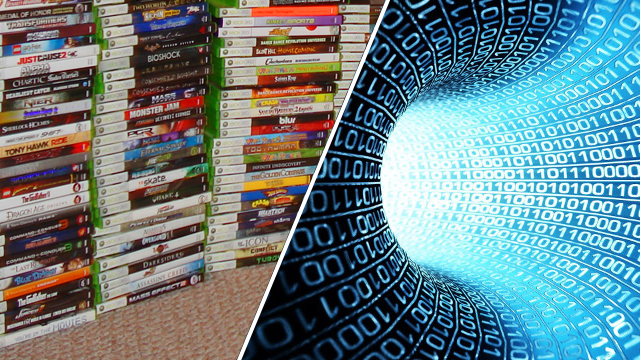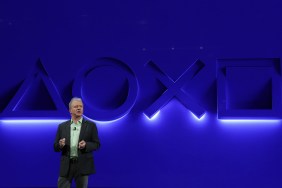From time to time, I want to listen to You Know My Name, Chris Cornell’s theme for the James Bond film Casino Royale. I don’t know why. Please don’t ask. I have a Spotify Premium account, so I might as well put it to some kind of use. It’s a pretty good Bond theme, with arguably the series’ best credit sequence! Sadly, if you want to listen to the original version of the song — the one used in the movie — you have to buy the original single CD. The version on Spotify, iTunes, and Amazon is the “Pop Mix,” an inferior version that eschews a string section for more drums. I had a download of the movie version saved in my Spotify library, only to have it replaced by the “Pop Mix” without any kind of warning.
Ellie Goulding’s excellent ethereal pop single Lights is another victim of this particular brand of historical revisionism. Currently, the only way to listen to the original version of Lights is to buy it off the digital Introduction to Ellie Goulding EP on Amazon. The “Single Version” on Spotify, iTunes, and the usual music streaming suspects isn’t unrecognizable as a version of Lights — it still has the breathy vocals and melancholy pop instrumentation that made the original so damn good. But, like George Lucas coming back to the Han Solo/Greedo confrontation and ruining it all those years later, the “Single Version” makes a small change that ruins the original song. The “Single Version” introduces a literal drum and bass line almost immediately, as opposed to the original song, which kept things simple until around a minute into the song.
It doesn’t make the song unlistenable, but it changes an almost supernatural tune into a Top 40 pop song. Nothing wrong with being a Top 40 song, if that’s what you’re going for, just like there’s nothing wrong with having one of the heroes of your film only shoot after somebody else shot first. But, like in the case of Han Solo, that wasn’t the original intent.

I’m both curious and afraid of post-release editing in video games. We already have patches, so it’s not even remotely unheard of for a developer to go back into a game and fix it. But we’ve seen developers start to take a stab at larger, structural changes, most infamously in the case of Mass Effect 3. That game’s ending was (properly) reviled for its out-of-nowhere catch-all solution and lack of proper emotional catharsis, so BioWare went back and offered players a 1 GB “ending patch,” with additional dialogue and cutscene material.
Although physical copies of Mass Effect 3 contain the original ending as intended, players who choose to purchase the game digitally (a growing number of people, if my conversations with video game store owners and employees are anything to go by) will be “treated” to the revised edition. The revised edition isn’t much better, and even as somebody who despised the ending to Mass Effect 3, there’s absolutely something to be said for experiencing a creative’s original, untainted vision.
But as the games industry moves towards digital (again, things are 100% trending that way, even if Microsoft did move away from the Xbox One’s original DRM plan), it seems like the games industry’s often loose relationship with its own history may extend to the digital sphere. Unless you’re big into the Limited Run physical releases, that will almost certainly be the case with independent games, which are predominantly sold on digital storefronts. If you’re putting a work of art into the world, that version of that work should be available in some form in perpetuity (technical glitches aside, in most cases).

And I get why you wouldn’t want to keep a piece online forever! Lord knows I’ve made mistakes in the past, I would love to go back and edit certain videos, podcasts, and articles. Hell, there are plenty of times where I’ve done so! But there’s a wide gulf between editing a typo and changing the ending of a culturally significant video game. For example, what if the team behind BioShock Infinite heard the criticism with regards to their muddled racial politics and replaced the current version with a version where some of the races of major characters had been changed? That certainly would’ve made for an interesting reinterpretation of the story, and it could’ve made the game a lot more palatable for some people. It might’ve been a great idea.
But to replace the existing version of Infinite entirely, instead of offering an optional patch, would’ve invalidated much of the interesting and criticism surrounding the game. Not only would the original version of Infinite no longer be available for curious would-be historians, but a whole swath of important cultural discussion would have been obliterated and invalidated. Game history is important, as is the conversation sounding games. Thankfully, plenty of disc-based copies of BioShock Infinite exist — this is only a hypothetical. In a not-too-distant future where digital storefronts are the norm, artists and creatives should be willing to edit their original works, all the while staying brave enough to let those original works stand alongside the edited versions.










